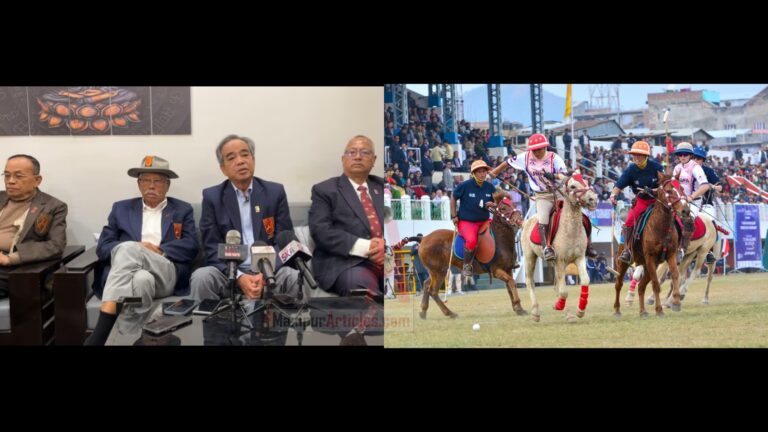Manipur’s Road Blockade: CoTU Urges for Peaceful Resolution
Summary
The Committee on Tribal Unity (CoTU) has called on Konsakhul villagers to lift the indefinite blockade on the Kangpokpi-Churachandpur road, a vital connection for the Kuki-Zo community. This blockade stems from a land dispute with Leilon Vaiphei village and has caused significant disruptions, particularly for a community already reeling from the aftermath of regional unrest. CoTU has labeled the blockade as unjustified and warned of potential consequences if it persists.
Introduction: Why Road Blockades Impact More Than Just Traffic
Let’s face it—road blockades are not just about stopping cars or trucks; they’re about disrupting lives. The Kangpokpi-Churachandpur road in Manipur is more than a stretch of asphalt—it’s a lifeline, especially for the Kuki-Zo community. Imagine being cut off from vital supplies, healthcare, and daily necessities. That’s the reality for thousands affected by the ongoing blockade initiated by Konsakhul villagers. So, what’s behind this blockade, and why is CoTU stepping in? Let’s break it down.
The Roots of the Blockade: A Land Dispute Boiling Over
Land disputes are nothing new in Manipur. The state’s diverse tribal communities often find themselves at odds over land ownership and boundaries. In this case, the conflict is between Konsakhul villagers and Leilon Vaiphei village. While the details of the dispute may seem localized, the consequences of the blockade have rippled far beyond the immediate region.
CoTU’s Response: A Call for Unity and Resolution
The Committee on Tribal Unity (CoTU) has taken a firm stance against the blockade. They’ve described it as “regrettable” and “entirely uncalled for,” emphasizing how it exacerbates the struggles of the Kuki-Zo community. Since the unrest of May 2023, this community has been striving to rebuild and reconnect. The blockade has only added to their challenges.
CoTU has appealed directly to Konsakhul villagers, urging them to lift the blockade immediately. Their message is clear: while grievances might exist, solutions should be sought through dialogue, not disruption.
The Broader Impact of Road Blockades
Blockades don’t just inconvenience travelers—they disrupt entire ecosystems. Here’s how the Kangpokpi-Churachandpur road blockade is impacting the region:
1. Economic Strain
Small businesses and local markets rely on the smooth transport of goods. A blockade halts supply chains, driving up costs and creating shortages.
2. Healthcare Challenges
For residents who depend on this road to access medical care, the blockade could mean life-threatening delays. Emergency services are particularly affected.
3. Educational Interruptions
Students commuting to schools or colleges face barriers, disrupting their education and future prospects.
4. Social Tensions
Prolonged blockades often deepen divides between communities. What begins as a localized issue can spiral into broader societal conflicts.
A Closer Look at the Kuki-Zo Community’s Struggles
The Kuki-Zo community has faced an uphill battle since the violent unrest of May 2023. Rebuilding connectivity among their regions has been a priority. The Kangpokpi-Churachandpur road is central to these efforts, making the blockade an even greater blow.
This road isn’t just a convenience; it’s a necessity. It’s how people access food, medicines, and opportunities. For a community working to recover, every day of the blockade feels like another step backward.
The Role of Community Organizations Like CoTU
Organizations like CoTU play a crucial role in mediating conflicts and advocating for peaceful solutions. Their appeal to Konsakhul villagers reflects a commitment to unity and dialogue. CoTU’s involvement highlights how community-driven initiatives can pave the way for sustainable resolutions.
Why Dialogue is the Only Way Forward
Let’s be real—blockades rarely solve disputes. They might draw attention to an issue, but they often cause more harm than good. Dialogue, on the other hand, offers a path to resolution. Here’s what needs to happen:
- Mediation
Neutral parties, including organizations like CoTU, can facilitate discussions between the conflicting sides. - Transparency
Both parties need to lay their concerns and claims on the table. Understanding each other’s perspectives is the first step toward compromise. - Community Involvement
The broader community, affected by the blockade, should have a voice in the resolution process. - Government Support
State authorities must step in to provide legal and logistical support, ensuring that disputes don’t escalate into larger conflicts.
The Consequences of Inaction
What happens if the blockade continues? The region could face long-term challenges:
- Economic Decline: Businesses may shut down, and unemployment could rise.
- Increased Health Risks: Without timely access to medical care, preventable conditions could escalate.
- Social Unrest: Prolonged blockades often ignite tensions, making future disputes even harder to resolve.
Conclusion: A Plea for Unity
The blockade on the Kangpokpi-Churachandpur road is more than a logistical issue; it’s a test of community resilience and unity. While land disputes are complex and deeply rooted, the methods of protest must consider their broader impact. CoTU’s appeal is a reminder that peaceful resolution is always possible—and always preferable. After all, when one road is blocked, it’s not just a route that’s disrupted; it’s the lives of everyone who depends on it.
FAQs
- What is the main reason behind the Kangpokpi-Churachandpur road blockade?
The blockade stems from a land dispute between Konsakhul villagers and Leilon Vaiphei village. - How has the blockade impacted the Kuki-Zo community?
It has disrupted their access to vital supplies, healthcare, and education, exacerbating their struggles. - What is CoTU’s stance on the blockade?
CoTU has condemned the blockade as unjustified and urged Konsakhul villagers to lift it immediately. - What are the potential long-term effects of the blockade?
Prolonged blockades could lead to economic decline, healthcare delays, and increased social tensions. - How can such disputes be resolved peacefully?
Through open dialogue, mediation by neutral parties, and support from government authorities.


